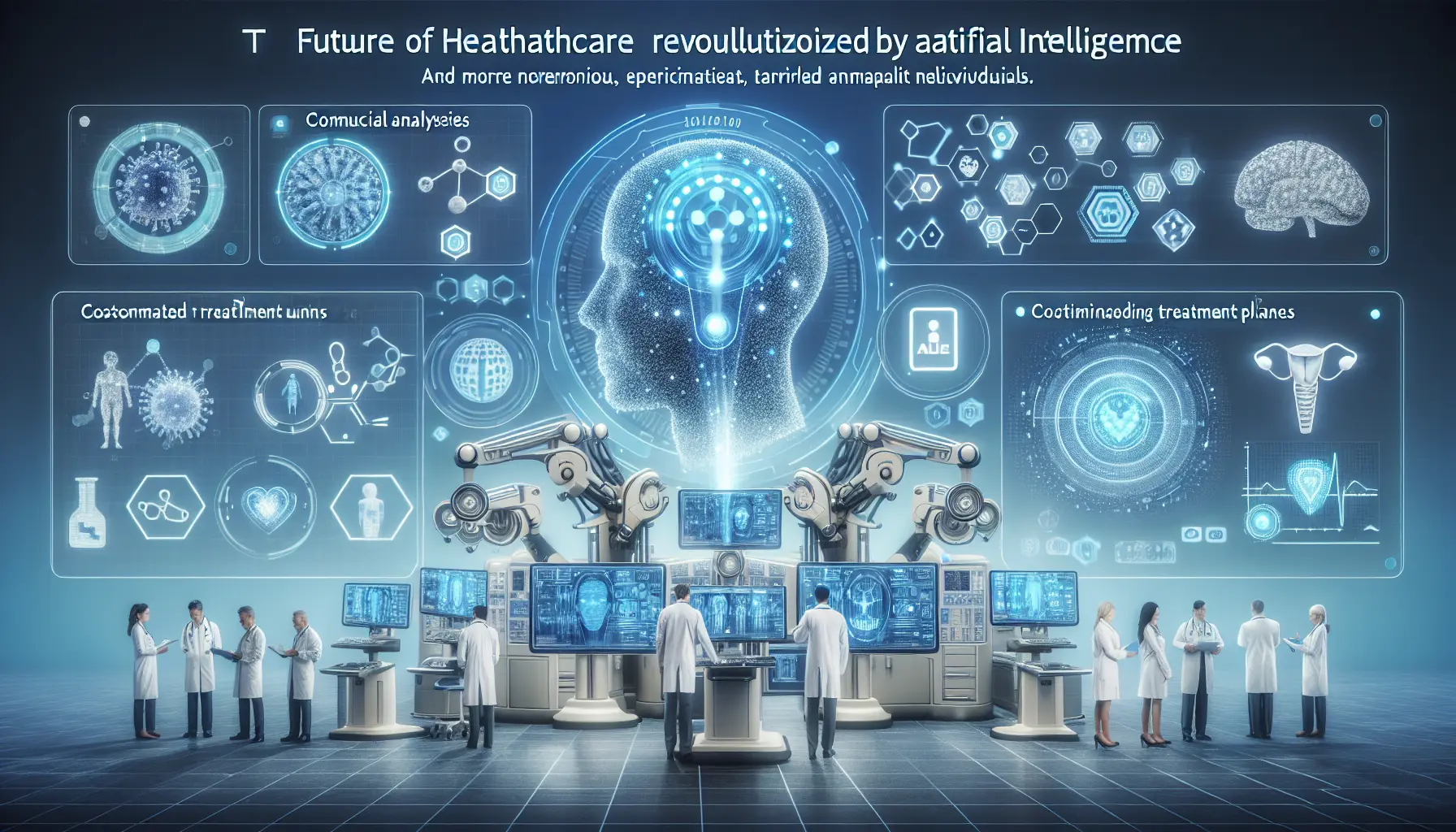
Estimated reading time: 8 minutes
Key Takeaways
- AI Adoption: 94% of healthcare organizations are now utilizing AI solutions.
- Diagnostic Precision: AI tools enhance diagnostic accuracy, particularly in radiology.
- Predictive Analytics: AI helps forecast patient outcomes, reducing readmissions by up to 50%.
- Personalized Care: AI tailors treatment plans based on individual patient data.
- Operational Efficiency: AI reduces administrative tasks, allowing healthcare professionals to focus on patient care.
Table of Contents
- The Revolution of AI in Modern Healthcare
- What Exactly is AI in Healthcare?
- Real-World Applications Transforming Patient Care
- How AI Supports Medical Professionals
- Measurable Benefits to Healthcare Systems
- Addressing Key Challenges
- The Future of AI in Healthcare
- Final Thoughts
- Frequently Asked Questions
The Revolution of AI in Modern Healthcare
Artificial intelligence is reshaping healthcare delivery in profound ways. With 94% of healthcare organizations now using AI solutions, this technology has moved far beyond experimental phases into practical, everyday medical applications. From diagnostic assistance to administrative efficiency, AI tools are creating measurable improvements in patient care and clinical outcomes.
What Exactly is AI in Healthcare?
Healthcare AI encompasses sophisticated technologies that enhance medical practices through machine learning, natural language processing, and computer vision. These systems analyze complex medical data, assist in diagnosis, and automate routine tasks – making healthcare more efficient and accurate.
- Machine learning algorithms that detect patterns in medical imaging
- Natural language processing for medical documentation
- Computer vision systems for diagnostic accuracy
- Neural networks for predictive healthcare analytics
Real-World Applications Transforming Patient Care
Advanced Diagnostic Tools
AI-powered imaging systems now analyze medical scans with remarkable precision. In the U.S., 76% of AI-enabled medical devices focus on radiology, where algorithms can spot subtle abnormalities that might escape human detection.
Predictive Healthcare Analytics
Modern healthcare facilities use AI to forecast patient outcomes and prevent complications. Up to 65% of U.S. hospitals now employ predictive systems, with some reporting 50% reductions in patient readmissions.
Personalized Treatment Planning
AI analyzes individual patient data – from genetic markers to lifestyle factors – creating truly personalized treatment approaches. This technology particularly shines in oncology, where AI platforms match specific cancer types to optimal drug combinations.
How AI Supports Medical Professionals
Enhanced Clinical Decision Support
AI assistants provide real-time analysis during patient consultations, offering evidence-based recommendations while leaving final decisions to human judgment.
Administrative Automation
Smart systems now handle up to 30% of patient interactions through:
- Automated appointment scheduling
- Medical record management
- Insurance processing
- Clinical documentation
Measurable Benefits to Healthcare Systems
Improved Accuracy
AI systems consistently demonstrate higher accuracy rates in areas like image analysis and risk prediction, leading to earlier disease detection and better treatment outcomes.
Operational Efficiency
Healthcare facilities report significant cost savings through:
- Reduced administrative overhead
- Fewer unnecessary tests
- Better resource allocation
- Streamlined workflows
Addressing Key Challenges
While AI brings remarkable benefits, healthcare organizations must navigate several important considerations:
Data Security and Privacy
Protected health information requires robust security measures and strict compliance with privacy regulations.
System Integration
Healthcare facilities need careful planning to integrate AI tools with existing medical systems and workflows.
Ethical Considerations
Organizations must ensure:
- Algorithmic fairness across patient populations
- Transparent decision-making processes
- Appropriate human oversight of AI systems
The Future of AI in Healthcare
Healthcare AI continues to evolve rapidly. Emerging trends include:
- Advanced generative AI for medical documentation
- Expanded remote patient monitoring capabilities
- Integration of molecular medicine with AI analysis
- Enhanced telemedicine platforms
These developments point toward a healthcare future that's more preventative, personalized, and accessible to all patients.
Final Thoughts
AI in healthcare represents a fundamental shift in how medical professionals deliver care. By combining human expertise with artificial intelligence, healthcare organizations can provide better patient outcomes while improving operational efficiency. As these technologies mature, we'll continue to see new applications that make healthcare more precise, proactive, and patient-centered.
Frequently Asked Questions
What are the main benefits of AI in healthcare?
AI enhances diagnostic accuracy, improves patient outcomes, and increases operational efficiency in healthcare systems.
How does AI improve patient care?
AI provides tools for personalized treatment plans, predictive analytics, and advanced diagnostic capabilities, leading to better patient care.
What challenges does AI face in healthcare?
Challenges include data security, system integration, and ethical considerations regarding algorithmic fairness and transparency.
Is AI in healthcare safe?
When implemented correctly with proper oversight, AI can be safe and beneficial in healthcare settings.
What is the future of AI in healthcare?
The future of AI in healthcare includes advancements in personalized medicine, predictive analytics, and enhanced patient monitoring technologies.









